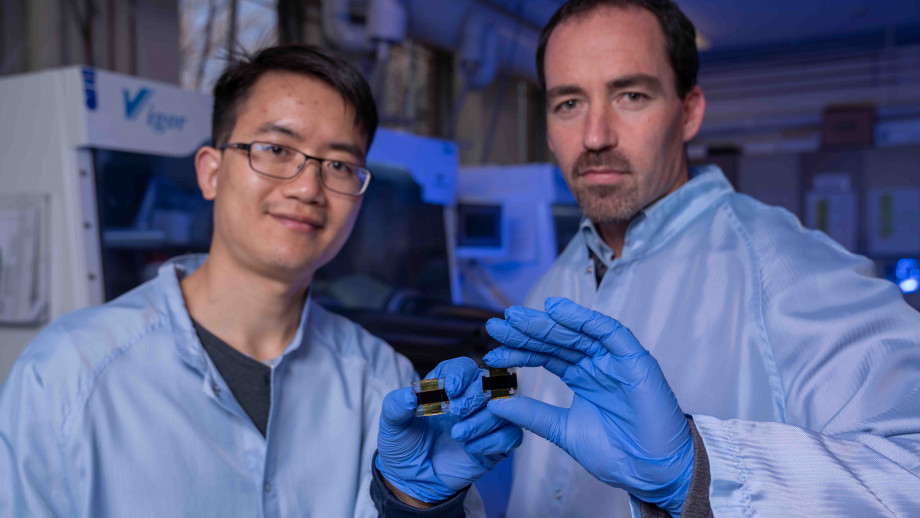Australia National University has set a new efficiency record of 21.6% for a single junction perovskite solar cell measuring 1cm².
The record was previously held by South Korea’s Ulsan National Institute of Science and Technology, which achieved 22.1% on a smaller perovskite cell in 2017 but topped out at 19.7% when scaled up to a square centimeter.
The Best Research Cell Efficiencies chart published by the U.S. National Renewable Energy Laboratory has listed another perovskite cell, jointly developed by the Korea Research Institute of Chemical Technology and MIT, at 25.2%, but further details do not appear to have been published yet.
“When they’re very small it’s difficult to measure them accurately and it’s not necessarily representative of what would happen if you scaled up,” said ANU associate professor Thomas White. “So our result is the highest on a scale that many consider the minimum: one square centimeter.”
Engineered nanostructure
The latest record setting cell relies on a specially engineered material with a nanostructure that enables high voltage and current. The Commonwealth Scientific and Industrial Research Organisation’s Photovoltaics Performance Laboratory certified Australia National University’s efficiency record.
The ANU study received funding from the Australian Renewable Energy Agency.
White went on to note the remaining challenge for perovskites is stability and proving they can match industry expectations for a 25 to 30-year operational lifetime. The associate professor said the university’s ultimate aim is to combine its perovskites into a tandem device with silicon – a target several companies are bringing closer to reality, with planned production lines ramping up in various locations.
This content is protected by copyright and may not be reused. If you want to cooperate with us and would like to reuse some of our content, please contact: editors@pv-magazine.com.




By submitting this form you agree to pv magazine using your data for the purposes of publishing your comment.
Your personal data will only be disclosed or otherwise transmitted to third parties for the purposes of spam filtering or if this is necessary for technical maintenance of the website. Any other transfer to third parties will not take place unless this is justified on the basis of applicable data protection regulations or if pv magazine is legally obliged to do so.
You may revoke this consent at any time with effect for the future, in which case your personal data will be deleted immediately. Otherwise, your data will be deleted if pv magazine has processed your request or the purpose of data storage is fulfilled.
Further information on data privacy can be found in our Data Protection Policy.